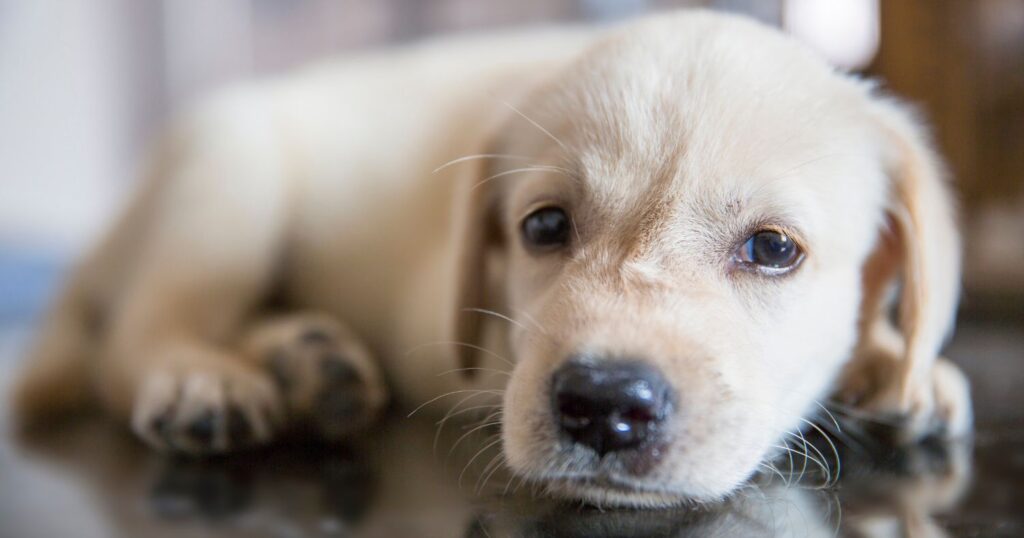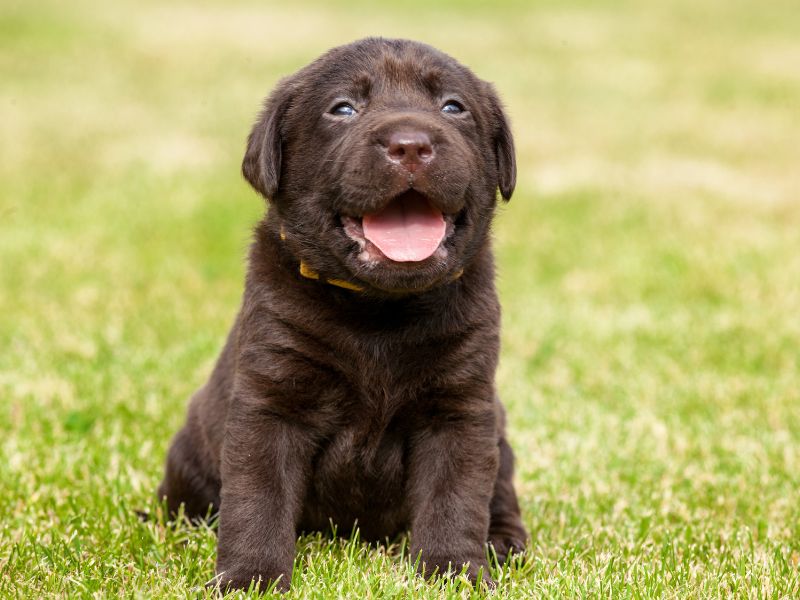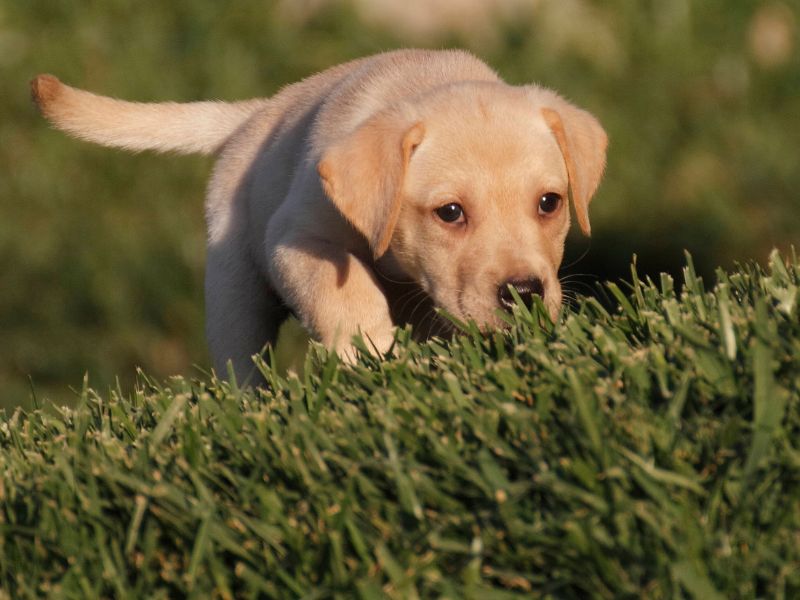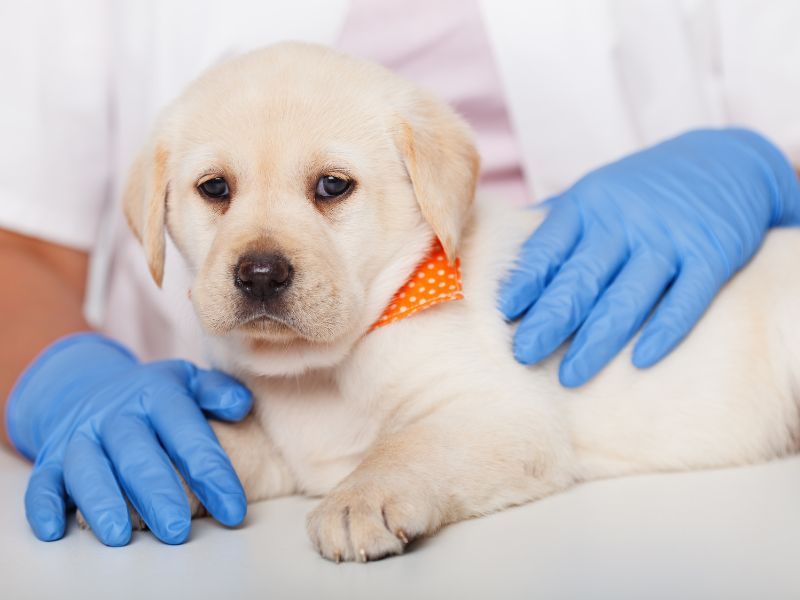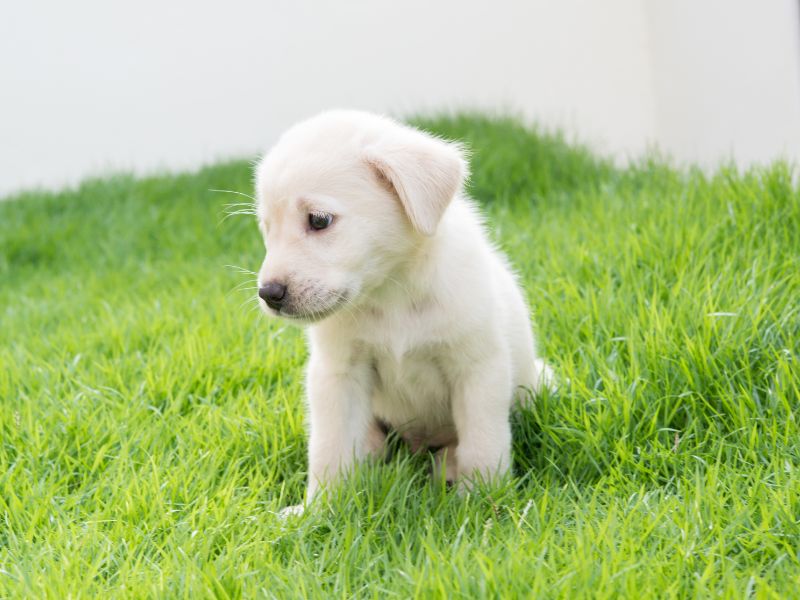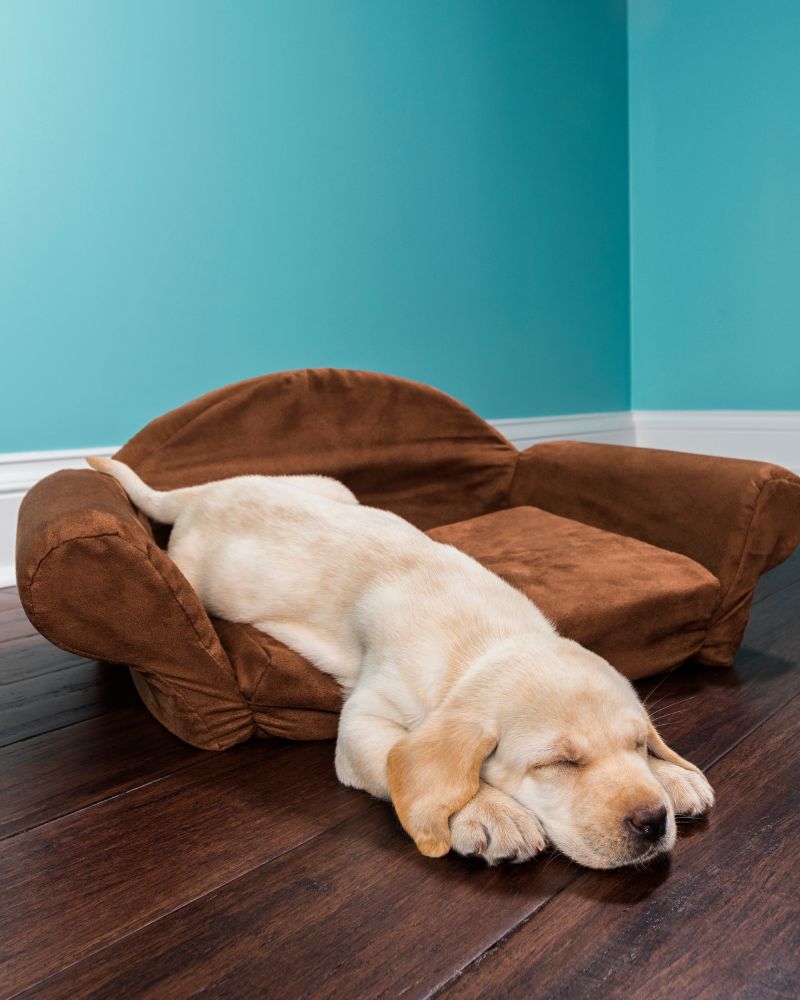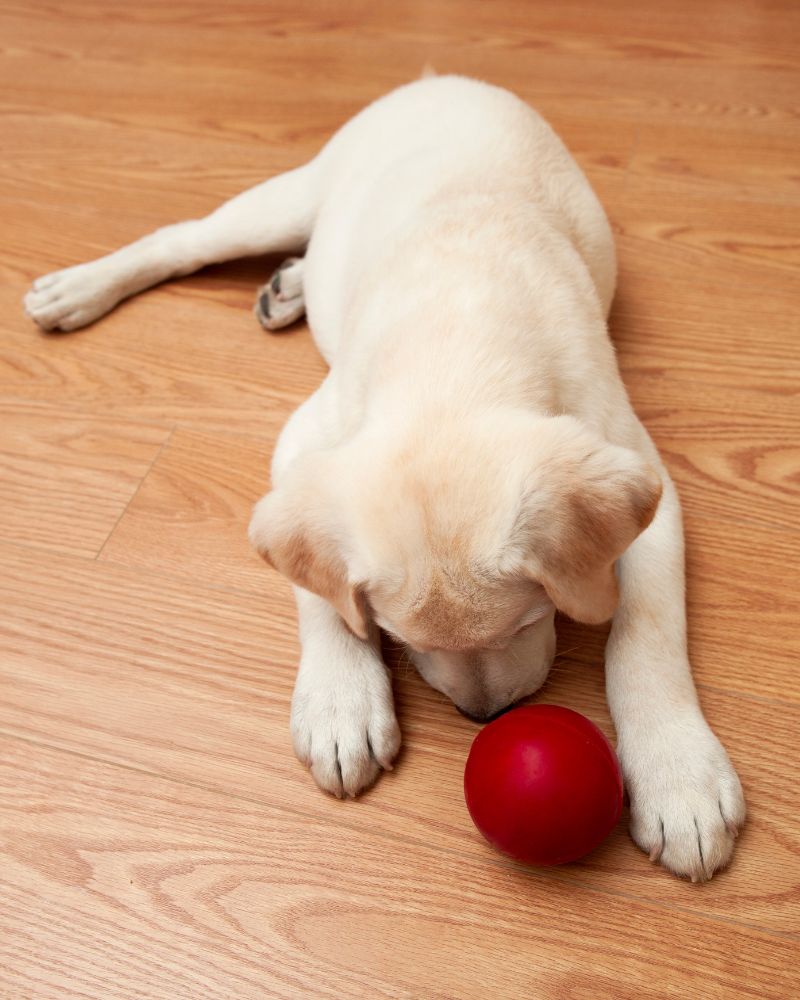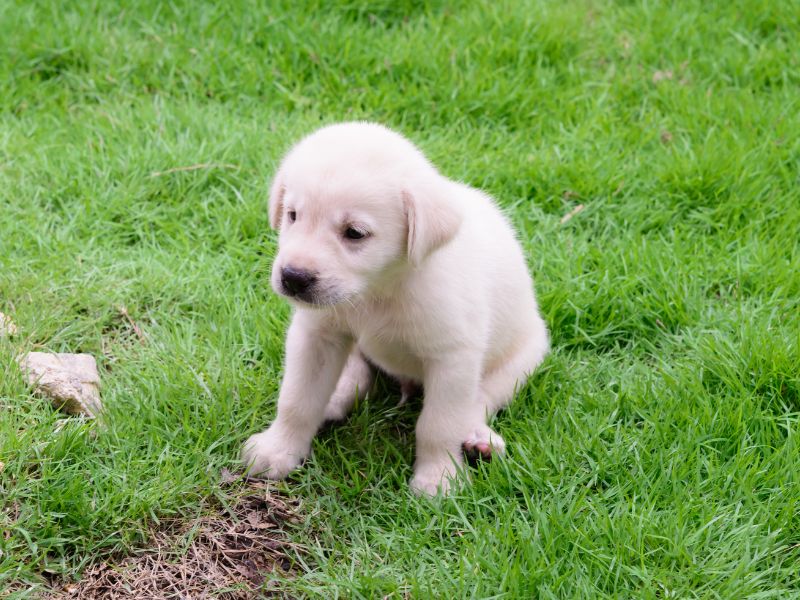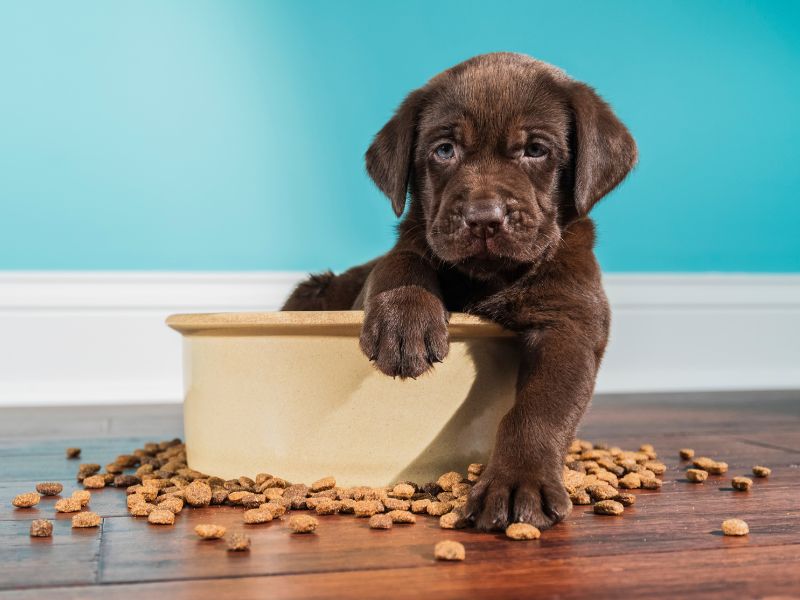A 10-week-old puppy is an adorable ball of energy that requires a lot of attention and care. At this age, puppies are just starting to explore the world around them and develop their social skills. It’s an exciting time for both the puppy and the owner, but it can also be overwhelming.
One of the most important things to keep in mind when caring for a 10-week-old puppy is their feeding schedule. Puppies at this age need to eat frequently throughout the day, usually around three to four times a day. It’s important to provide them with high-quality puppy food that meets their nutritional needs. Additionally, puppies need plenty of fresh water available at all times to stay hydrated.
Another crucial aspect of caring for a 10-week-old puppy is their socialization. This is the time when they start to learn how to interact with other dogs and people. It’s important to expose them to different environments and experiences to help them develop into well-rounded adult dogs. However, it’s important to be cautious and not overwhelm them with too much too soon.
Your 10 Week Old Puppy Schedule
At 10 weeks old, puppies are still young and require a lot of attention and care. Establishing a schedule for your puppy is crucial for their development and well-being. Here is a typical 10-week-old puppy schedule that can be used as a basis for your own:
- 6 am: Potty break
- 7 am: Meal then potty break
- 9 am: Potty break
- 11 am: Meal then potty break
- 1 pm: Potty break
- 3 pm: Meal then potty break
- 5 pm: Potty break
- 7 pm: Meal then potty break
- 9 pm: Potty break before bed
It’s important to note that the timings may vary depending on your routine and your puppy’s bladder size.
In addition to potty breaks and meals, playtime and exercise should also be incorporated into your puppy’s daily routine. This helps them expend energy and bond with their owner. Walking around the neighborhood, playing with toys, and training sessions are all great ways to keep your puppy engaged and stimulated.
Overall, a structured schedule helps your puppy feel safe and secure, and it also makes training easier. With consistent training and care, your 10-week-old puppy will grow into a happy and healthy adult dog.
What to Expect from a 10 Week Old Puppy
At 10 weeks old, puppies are still very young and require a lot of attention and care from their owners. They are at a critical stage of development and need proper socialization, training, and nutrition to grow into healthy and well-behaved adult dogs.
One of the most important things to expect from a 10 week old puppy is their need for frequent potty breaks. According to The Labrador Site, a typical 10 week old puppy schedule includes potty breaks every 2-3 hours during the day, as well as after meals and naps. It’s important to establish a consistent routine for potty breaks and reward your puppy for going outside.
Another thing to expect from a 10 week old puppy is their boundless energy and curiosity. They love to explore their surroundings and play with toys and other dogs. It’s important to provide them with plenty of opportunities for exercise and playtime, but also to supervise them closely to prevent accidents and injuries.
At this age, puppies are also going through a critical fear period, which may cause them to become anxious or scared of new experiences. Dogster recommends exposing your puppy to a variety of positive experiences and socializing them with other dogs and people to help them build confidence and overcome their fears.
Overall, a 10 week old puppy requires a lot of patience, love, and attention from their owner. With proper care and training, they will grow into loyal and well-behaved companions.
When Puppy Blues Sets In…
Bringing home a new puppy can be an exciting and rewarding experience. However, it is not uncommon for new puppy owners to experience feelings of anxiety, stress, and even depression. These feelings are commonly referred to as “puppy blues.”
Puppy blues can set in right away, or after a few days or weeks. It often hits unexpectedly and overwhelmingly, pulling out the rug under the feet of new dog owners. Symptoms of puppy blues can present themselves in various ways, but it tends to be a mix of negative feelings towards the concept of puppy ownership or the puppy itself.
If you or someone you know is experiencing puppy blues, know that it is normal and you are not alone. There are ways to cope and overcome these feelings. One way is to try something new. The first couple of days or weeks can be a complete nightmare when attempting to train the new puppy, and you may fall back into survival mode. Trying a new method or approach may help ease the stress and anxiety.
Another way to cope with puppy blues is to remember that the puppy stage is temporary. It is important to remember that many of the things that create the puppy blues are fleeting. For example, the sleep deprivation that comes with potty training a puppy is a temporary phase, and there is an end in sight. The biting and nipping that puppies tend to engage in can be frustrating, but it is important to remember that it is a normal part of the puppy stage and will eventually pass.
Overall, it is important to give yourself time to adjust to your new furry friend. Remember to take breaks, ask for help when needed, and practice self-care. With time, patience, and a little bit of effort, the puppy blues will pass, and you will be left with a loyal and loving companion.
How to Cope
Caring for a 10-week-old puppy can be challenging, but with the right approach, it can also be rewarding. Here are a few tips on how to cope with your new furry friend:
- Establish a routine: Puppies thrive on routine, so it’s important to establish a consistent schedule for feeding, potty breaks, playtime, and rest. This will help your puppy feel secure and reduce the likelihood of accidents or behavioral issues.
- Provide plenty of exercise and socialization: Puppies have lots of energy and need plenty of exercise and socialization to stay healthy and happy. Take your puppy for short walks, play games, and introduce them to new people and animals to help them develop social skills.
- Be patient and consistent: Puppies are still learning, so it’s important to be patient and consistent with your training. Use positive reinforcement to encourage good behavior and avoid punishment or negative reinforcement, which can be confusing and counterproductive.
- Create a safe and comfortable environment: Puppies need a safe and comfortable environment to thrive. Provide a cozy bed, plenty of toys, and a designated space for eating and sleeping. Keep hazardous items out of reach and supervise your puppy at all times to prevent accidents.
By following these tips, you can help your 10-week-old puppy adjust to their new home and develop into a happy and well-behaved adult dog.
Socializing a 10 Week Old Puppy
Socializing a 10 week old puppy is crucial for their development and well-being. It helps them become comfortable with different people, places, and situations, which can prevent fear and aggression later in life. Here are some tips for socializing a 10 week old puppy.
Quality Over Quantity
When it comes to socializing a 10 week old puppy, quality is more important than quantity. While it’s important to expose your puppy to different experiences, it’s equally important to make sure those experiences are positive. For example, if your puppy is scared of other dogs, forcing them to interact with a large group of dogs could be overwhelming and traumatic. Instead, start with one or two friendly dogs and gradually increase the number as your puppy becomes more comfortable.
It’s also important to pay attention to your puppy’s body language and behavior. If they seem scared or uncomfortable, don’t force them to continue the interaction. Instead, remove them from the situation and try again later. Remember, socialization should be a positive experience for your puppy, not a stressful one.
In conclusion, socializing a 10 week old puppy is an important part of their development. By focusing on quality over quantity and paying attention to your puppy’s body language, you can help them become well-adjusted and confident adults.
Here’s How to Do It
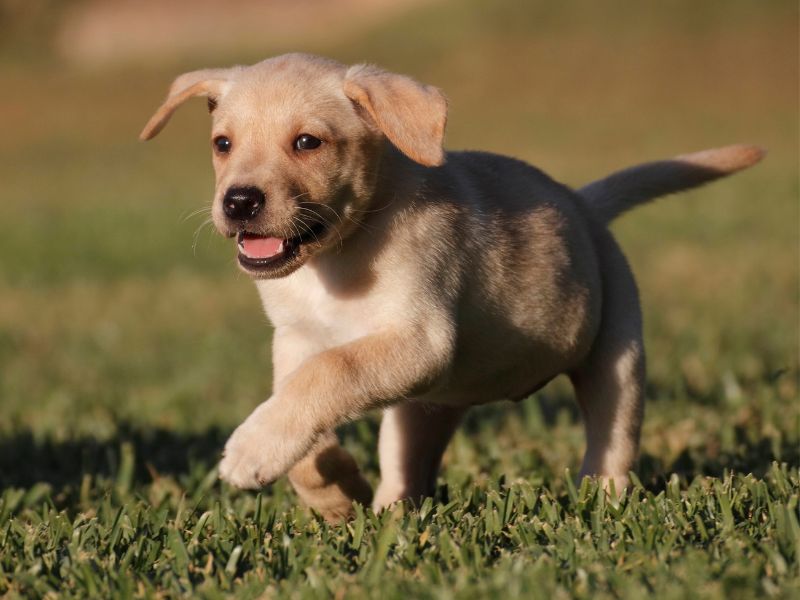
Taking care of a 10-week-old puppy is an exciting and rewarding experience. However, it can also be challenging, especially for first-time puppy owners. Here are some tips to help you take care of your furry friend:
Establish a Routine
It is essential to establish a routine for your puppy. This includes feeding, potty breaks, playtime, and sleep. A consistent routine helps your puppy feel secure and safe, and it also makes training easier.
Provide Proper Nutrition
Puppies need a balanced diet to support their growth and development. Choose a high-quality puppy food that meets their nutritional needs. Feed your puppy small meals throughout the day, and make sure they have access to fresh water at all times.
Socialize Your Puppy
Socializing your puppy is crucial for their development. Introduce them to new people, animals, and environments. This helps them learn how to interact with others and reduces the risk of behavioral issues in the future.
Train Your Puppy
Training your puppy is essential for their well-being and your sanity. Teach them basic commands like sit, stay, and come. Use positive reinforcement techniques like treats and praise to encourage good behavior.
Provide Plenty of Exercise
Puppies have a lot of energy, and they need plenty of exercise to stay healthy and happy. Take your puppy for walks, play fetch, and provide them with toys to keep them entertained.
By following these tips, you can provide your 10-week-old puppy with the care and attention they need to thrive. Remember to be patient, consistent, and loving, and your puppy will grow into a happy and well-behaved adult dog.
Getting Used to Being Touched
At 10 weeks old, puppies are still learning about the world around them. One important aspect of their development is getting used to being touched. This will help them feel more comfortable with grooming, veterinary visits, and other necessary handling.
To help your puppy get used to being touched, start with gentle touches on their body. Stroke their fur, touch their paws, and gently rub their ears. Reward them with treats and praise to reinforce positive behavior.
It’s also important to get your puppy used to being handled in different ways. Lift them up gently, support their body, and hold them in different positions. This will help them feel more comfortable with being picked up and held.
By gradually introducing your puppy to different types of touch and handling, you can help them feel more comfortable and confident as they grow.
Usage limit exceeded. Please buy a plan to get more credits 😄
Get Pippa’s Training Tips!
Pippa’s dog training tips are an excellent resource for new puppy owners. These tips cover a wide range of useful topics, from specifics like potty training and recall, to general tips on getting your dog’s attention, avoiding mistakes, motivating yourself and your dog, and setting yourself up to succeed. The tips are completely free, and you can opt-out at any time.
One of the most important things to know about raising a dog is to start training early. Pippa’s tips can help you get started on the right foot with your new 10-week-old puppy. For example, she recommends maintaining a schedule for potty training. Take your puppy out first thing in the morning, after eating, and after playtime and naps throughout the day. At this point, they should start having enough bladder control to learn.
Another great tip from Pippa is to use positive reinforcement when training your puppy. Reward good behavior with treats, praise, and playtime. This will help your puppy learn faster and make training more enjoyable for both of you.
Pippa’s tips also cover other important topics like socialization, crate training, and obedience training. By following her advice, you can help your puppy grow into a well-behaved and happy adult dog.
Don’t Feel Overwhelmed!
Bringing home a 10 week old puppy can be an exciting experience, but it can also be overwhelming. It’s normal to feel a bit stressed or anxious, especially if this is your first time owning a puppy. However, it’s important to remember that with patience, consistency, and a positive attitude, you can overcome any challenges.
One way to avoid feeling overwhelmed is to have a plan in place before bringing your puppy home. This can include creating a schedule for feeding, potty breaks, and playtime. It’s also important to establish rules and boundaries from the start, such as where your puppy is allowed to go in the house and what behaviors are acceptable.
Another way to reduce stress is to enlist the help of family members or friends. Having someone to share the responsibilities with can make the process more enjoyable and less daunting. Additionally, attending puppy training classes or seeking advice from a professional dog trainer can provide valuable guidance and support.
Remember to take breaks and give yourself time to recharge. It’s okay to feel overwhelmed at times, but it’s important to prioritize self-care and avoid burnout. Taking a walk, reading a book, or practicing meditation can help you stay calm and centered.
Overall, don’t be too hard on yourself and remember that raising a puppy takes time and effort. With patience, consistency, and a positive attitude, you can create a loving and fulfilling relationship with your furry companion.
Spending Time Alone!
At 10 weeks old, puppies are still very young and require a lot of attention and care. However, it’s important to start training them to spend time alone as well. This will help them develop independence and prevent separation anxiety later on.
According to the American Kennel Club, puppies under 10 weeks old should not be left alone for more than one hour at a time. As they get older, the amount of time they can be left alone increases. By 10-12 weeks old, they can be left alone for up to two hours at a time.
It’s important to remember that every puppy is different and may have different needs when it comes to spending time alone. Some puppies may be more independent and comfortable being alone, while others may struggle with it.
To help your puppy get used to spending time alone, start by leaving them alone for short periods of time and gradually increasing the amount of time they spend alone. Make sure they have plenty of toys and a comfortable place to rest while you’re gone.
Overall, it’s important to be patient and consistent when training your puppy to spend time alone. With time and practice, they will learn to be comfortable on their own and you can feel confident leaving them alone for longer periods of time.
Games And Training
Training and playing games with a 10-week-old puppy is an essential part of their development. The puppy’s brain is like a sponge, so it’s crucial to start training and socialization early on. Here are a few tips on how to keep a 10-week-old puppy engaged and active:
- Teach basic commands: At this age, puppies can learn basic commands like sit, stay, and come. Consistent training is essential to ensure that the puppy understands what is expected of them. Positive reinforcement like treats or praise can help motivate the puppy to learn.
- Socialization: Introduce the puppy to new people, animals, and environments to help them become well-adjusted and friendly. Take the puppy on walks to meet new people and other dogs. Let them play with toys and explore new places.
- Playtime: Puppies have lots of energy, so it’s essential to provide them with plenty of playtime. Play fetch, tug-of-war, or hide-and-seek to keep them active and engaged. Be sure to supervise playtime to ensure the puppy’s safety.
- Puzzle toys: Puzzle toys can help keep a puppy’s mind stimulated. Fill a Kong toy with peanut butter or other treats to keep them occupied. Puzzle toys can also help prevent destructive behavior like chewing on furniture.
Remember to keep training and playtime sessions short and fun. A 10-week-old puppy has a short attention span, so it’s best to keep sessions to 10-15 minutes at a time. With consistent training and socialization, a 10-week-old puppy can grow into a well-behaved and happy adult dog.
Potty Training Problems
Potty training a 10-week-old puppy can be challenging, and there are a few common problems that may arise during the process. One problem is when the puppy is missing accidents. This is why both confinement and active supervision are so important to the puppy potty training process. Every time an accident is missed, it extends the length of time it takes to potty train the puppy. It is essential to keep an eye on the puppy at all times and take them outside frequently to prevent accidents.
Another issue that may occur is when the puppy has accidents while the owner is at work. To prevent this problem, the owner can either tether the puppy to them until it is 100% potty trained or block off any rooms or areas when they are not able to supervise the puppy.
Some puppies may also develop a preference for eliminating on a specific surface such as carpet or grass. To solve this issue, the owner can try to gradually transition the puppy to eliminate on the desired surface by using positive reinforcement.
In addition, some puppies may become anxious or scared when outside, which can make it difficult to potty train them. To address this issue, the owner can try to make the outdoor environment more comfortable for the puppy by providing treats and toys and gradually increasing the time spent outside.
Overall, potty training a 10-week-old puppy requires patience, consistency, and positive reinforcement. By addressing common problems and providing a comfortable environment for the puppy, the potty training process can be successful.
How Is Your 10 Week Old Puppy Getting On?
At 10 weeks old, your puppy is growing fast and developing rapidly. They are becoming more active and curious about their surroundings. They are also starting to show their personalities and may be testing boundaries. It’s important to continue to provide them with plenty of love, attention, and positive reinforcement to encourage good behavior.
Your puppy is likely still adjusting to their new home and may experience some anxiety or fear. It’s important to create a safe and comfortable environment for them, with plenty of opportunities for rest and relaxation. A crate can be a useful tool for providing a secure space for your puppy to sleep and rest.
At this age, your puppy should be eating three to four small meals a day. Make sure to choose a high-quality puppy food that meets their nutritional needs. It’s also important to provide plenty of fresh water and to monitor your puppy’s weight to ensure they are growing at a healthy rate.
Your puppy may still be working on their potty training, so it’s important to establish a consistent routine for taking them outside. Be patient and positive, and reward them for good behavior. Remember, accidents will happen, so it’s important to be prepared with cleaning supplies and to avoid punishing your puppy for mistakes.
Overall, your 10-week-old puppy is a bundle of energy and excitement. With plenty of love, patience, and positive reinforcement, they will continue to grow and thrive in their new home.

